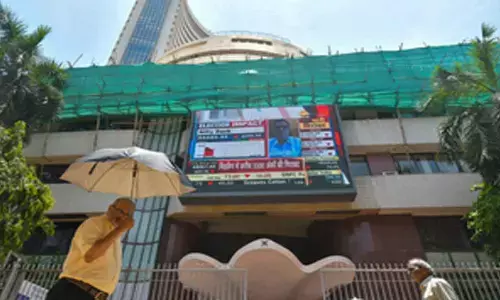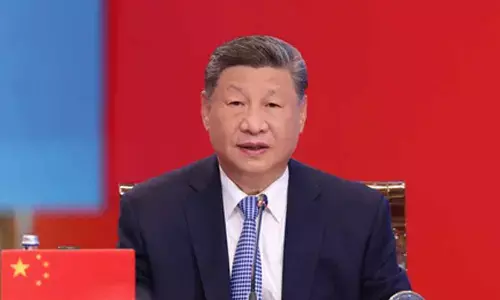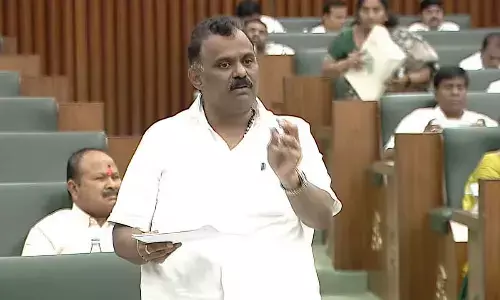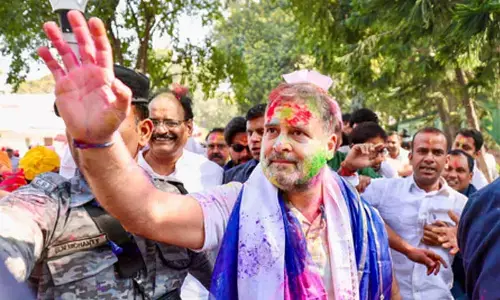Despite flaws, India making strides

The 71st year of Independence begins with the call by Prime Minister Narendra Modi for eradication of corruption, poverty, terrorism, casteism, communalism to create a new India. This is significant to reshape the contours of Indian society and economy.
The 71st year of Independence begins with the call by Prime Minister Narendra Modi for eradication of corruption, poverty, terrorism, casteism, communalism to create a new India. This is significant to reshape the contours of Indian society and economy.
Since the first Independence Day such calls are being given. It is true that the nation has made progress. The standard of living has improved. In 1970s, even the then Prime Minister Indira Gandhi said so. But it is also true that disparity has also increased.
It is a fact that social discontent, may not be the strife, is on the rise. Else on the day of August Kranti, (August 9) Mumbai would not have witnessed a silent rally by reportedly five lakh Marathas.
Yes, clannish, casteist protests of supposedly powerful social groups like Patidars in Gujarat, Jats in Haryana, Gujjars in Rajasthan, farmers and other communities across the country have become the norm. They all are demanding jobs, reservations, loan waivers and other concessions.
This is despite a functional government since 2014. The Modi government has instilled hopes and flooded the nation with a number of programmes from ‘Skill India,’ ‘Mudra’, ‘Make in India’ and so many others for almost every different group. The Prime Minister’s August 9 call is significant.
He wants to transform the nation. The accumulated problems, the burgeoning population, scarce resources, the vast expanse of the country come in the way.
So, would the nation’s wishes to change it in another five years remain a dream? It should not be so. But wishes alone cannot be horses. Why could not the nation during the last decades achieve what it wanted?
The answer is the countrymen achieved it piecemeal. Some got it and many did not. Why? The governments could not bake a cake that is big and sufficient for all. Those who could pounce upon got a slice or more, others just lustily pined for it. As they did not get, they got together in the name of castes, communities,
other groups to express their discontent. The socialistic slogans, licence-permit raj, high taxes that rob the earners, neglect of agriculture and it being treated separate from the economic process, big industries, planning commission-NITI Ayog, liberalisation-globalisation, anti-China protests have not helped.
The cake has remained small. The equity remains elusive. The high earner is as dissatisfied at the taxes as the lowest one who also shells out as high as him. India has not tried to get rid of its impoverishing income tax – an average salaried person loses four to five months’ wages.
Higher tax collection (19 percent more direct tax now) has not added to the pace of growth. And the governments crib that production is slowing down! How can production go up if people have to pay irrational taxes and continuously face an inflationary situation? Except for 1998-2004, India rarely had a stable price regime or real low inflation with adequate productivity and high job growth.
Despite difficulties, India is awake and making strides almost in all spheres. Its GDP in 1950 was Rs 10,536 crore and now Rs 1.68 lakh crore.
In 1947 life expectancy was 32, now it is 68, a per capita income of Rs 249.6 has become Rs 1.03 lakh, and in terms of GDP India ranks third after China and the US.
It is also true that CAG has found fault with every government department big or small. The latest RBI consumer survey in six cities of Bangalore, Chennai, Hyderabad, Kolkata, Mumbai and New Delhi for June 2017 shows the percentage of people who said their income growth was lower than in December 2013 and March 2014, when the disenchantment with the UPA government was at its peak.
The net responses have been negative for six consecutive quarters now. Manufacturers have marginally increased employment. The RBI surveys despite this point out that the people largely still are hopeful of the job and other conditions improving by the next year.
The road ahead is well known though not marked. The GST is a beginning but unless other taxes and cess are drastically reduced and a humane approach to taxation is adopted, the projected transformation may not be there. The GST has also not eliminated tax on tax.
The goal has to be increasing opportunities, protecting bank deposits, make banking cost-free, keeping utility prices like electricity and petroleum low and taking investment out of the private coffers.
By Shivaji Sarkar









